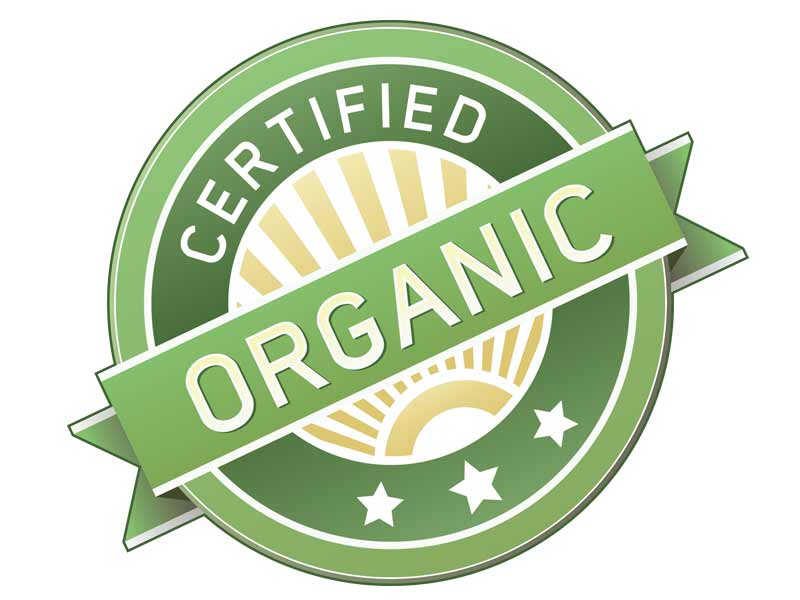The demand for organic products continues to increase as more people take advantage of their benefits. Governments around the world have struggled with ensuring that products labeled as organic maintain organic standards in growing, handling and processing. In order to maintain the organic label, all parts of the production chain must have the designation. The designation allows consumers to have confidence in the label and often leads to a premium price for suppliers.
Get Certified in One of the Four Product Areas
The United States Department of Agriculture (USDA) certifies those who “use natural processes and materials when developing farming systems” as producing organic products. Though this sounds simple, there are numerous practices and products that are required. For organic crop production, practices include good soil fertility, managing pests, diseases and weeds, maintaining the integrity of seeds and planting stock and crop rotation. Livestock practices deal with the living conditions and facilities, grazing and feed, as well as animal health and origin. Processing practices cover areas such as using 95% organic ingredients, not commingling organic and non-organic foods and managing pests predominantly through prevention. Wild crops are grown from a site that is not cultivated and must remain in its natural state.
Applying for Organic Certification
If you are interested in becoming organic certified, it is important to check the requirements with the USDA and accredited certifying agents in your area. Through an accredited certifying agent, you will be required to make application to be organic certified. The application process includes submitting an operations plan and 3-year history of the substances used on the land. You will also be asked to identify what you plan to grow, raise or process and provide a description of practices in an organic system plan.
Organic Certification Process
The organic certification process can take some time. It is important to follow the requirements laid out by your accredited certifying agent and to stay in communication with him. Initially, you will adopt the organic processes and prepare your application. Once the completed application has been submitted, the agent will review for compliance with USDA requirements. If the application is accepted, a site visit will be scheduled during which a full inspection will be completed. If all is in order, the organic certificate is issued.
Annual Recertification Required
Once you have received your organic certification, you will be required to be recertified annually. This includes submitting an update to the certifying agent and scheduling a site inspection The goal of this process is to make sure nothing has changed and that the business continues to operate in compliance with USDA regulations.
Additional Requirements
In addition to obtaining the organic certified designation, you will also be required to follow Hazard and Critical Control Points (HACCP) requirements and International Organization for Standardization (ISO) standards. Closely related, the HACCP guidelines guard against foodborne illnesses such as E.coli and salmonella. The ISO standards merge various laws and regulations from around the world to create comprehensive standards that allow companies to do business internationally. ISO standards deal with many industries and, specifically with food safety and international transport.
Though obtaining the organic certification can be lengthy, there is assistance available throughout the process, especially with trusted ISO Consultants such as Ledge Inc. The demand for organic foods are expected to continue growing, making this a good business opportunity. The USDA and the certifying agents are available to answer questions and assist throughout the process.
Looking for assistance with obtaining an organic certification? Contact us today for help!


